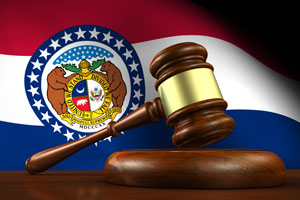The Missouri Court of Appeals Eastern District has thrown out sanctions against a plaintiff’s expert witness, ruling that he did not act unethically in negotiating a settlement with another law firm.
District Court Case
Attorney Gregory Leyh and the law firm Millsap & Singer have been litigating against each other for years. Leyh has represented hundreds of plaintiffs in lawsuits against Millsap, alleging that Millsap engaged in improper conduct in connection with its representation of banks and mortgage holders in foreclosures and collections. Leyh was also appointed class counsel on a pending class action lawsuit for similar improper conduct. Millsap has sought to sanction Leyh, decertify the class in his suit, and filed suit against him personally for malicious prosecution and abuse of process.
In 2010, Debra Woodson filed a suit against Millsap and its client Bank of America for wrongful foreclosure. Woodson’s attorney retained Leyh as an expert witness in the case. The parties entered a protective order which indicated that documents that were marked confidential were not to be disclosed or used in any current or future litigation. However, Leyh was never made aware of that order.
Leyh was given access to a confidential deposition for his role as an expert in the Woodson case. Leyh later disclosed that deposition in discovery to the case in which he was serving as class counsel.
Millsap filed a motion for contempt, arguing that Leyh’s disclosure and use of the deposition was a knowing and intentional violation of the Woodson protective order.
The parties negotiated a settlement agreement but could not come to a final agreement on all settlement terms.
Millsap filed a motion to enforce the settlement. Following a two-day hearing, the trial court found that the parties had reached a settlement agreement, agreed to modify that agreement, and that Leyh’s refusal to execute the agreement was in bad faith. The court also found that Leyh’s assertion that his attorney had the authority to negotiate, but not settle the dispute was not credible. The court further found that Leyh’s failure to advise Millsap’s counsel about this limited authority was a violation of Rule 4-4.1 of the Missouri Supreme Court’s Rules of Professional Responsibility, which require Leyh to be truthful to opposing counsel. The court imposed a $35,000 sanction against Leyh, based on its determination that he had behaved unethically and in bad faith.
Missouri Court of Appeals
Leyh appealed to the Missouri Court of Appeals. On appeal, the Court of Appeals agreed with the trial court that the parties had reached a settlement agreement; however they disagreed that the parties had agreed to modify that agreement. The court also disagreed with the finding that Leyh had acted in bad faith.
The Court of Appeals also reversed the trial court’s finding that Leyh had violated Rule 4-4.1 of the Missouri Supreme Court’s Rules of Professional Responsibility. It noted that Leyh was not acting as a lawyer in this case, he was acting as an expert witness. Rule 4-4.1 only applies to lawyers when they are representing clients.
The case was decided by Judges James M. Dowd, Gary M. Gaertner, Jr., and Robin Ransom.




